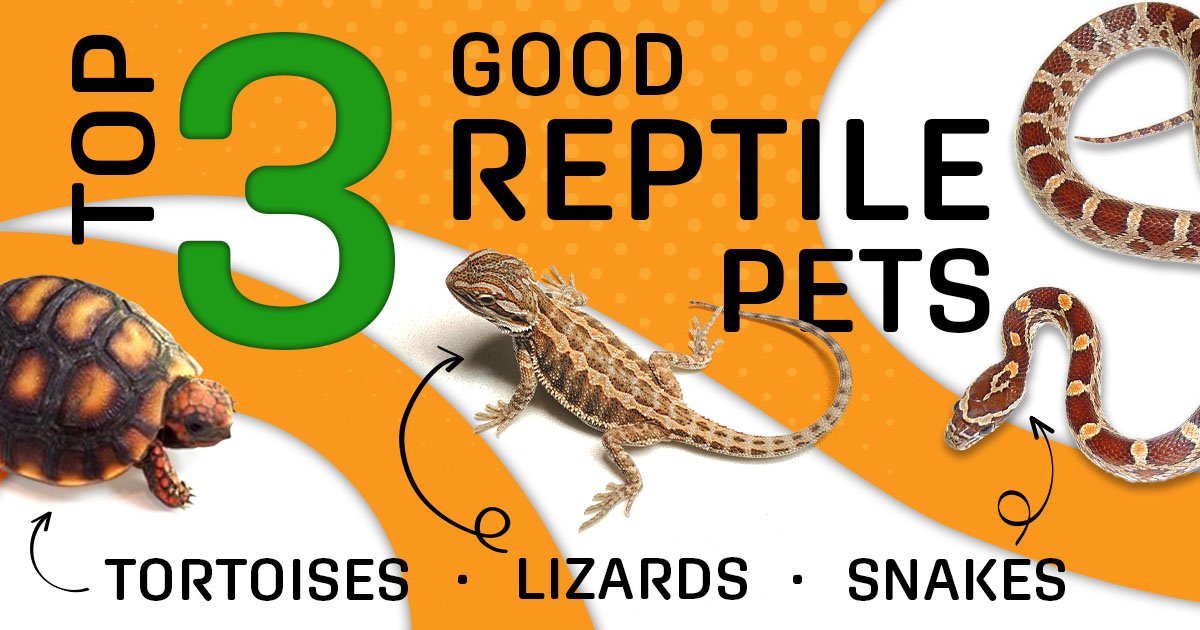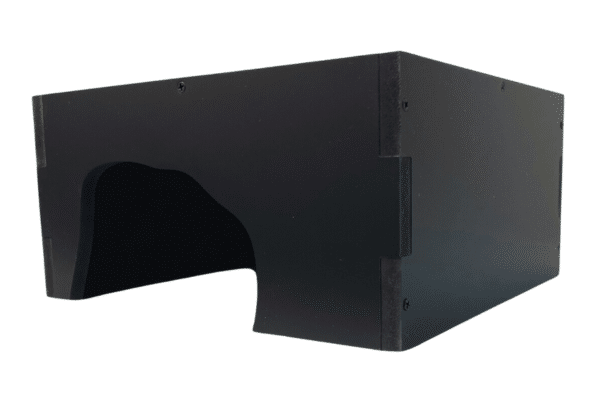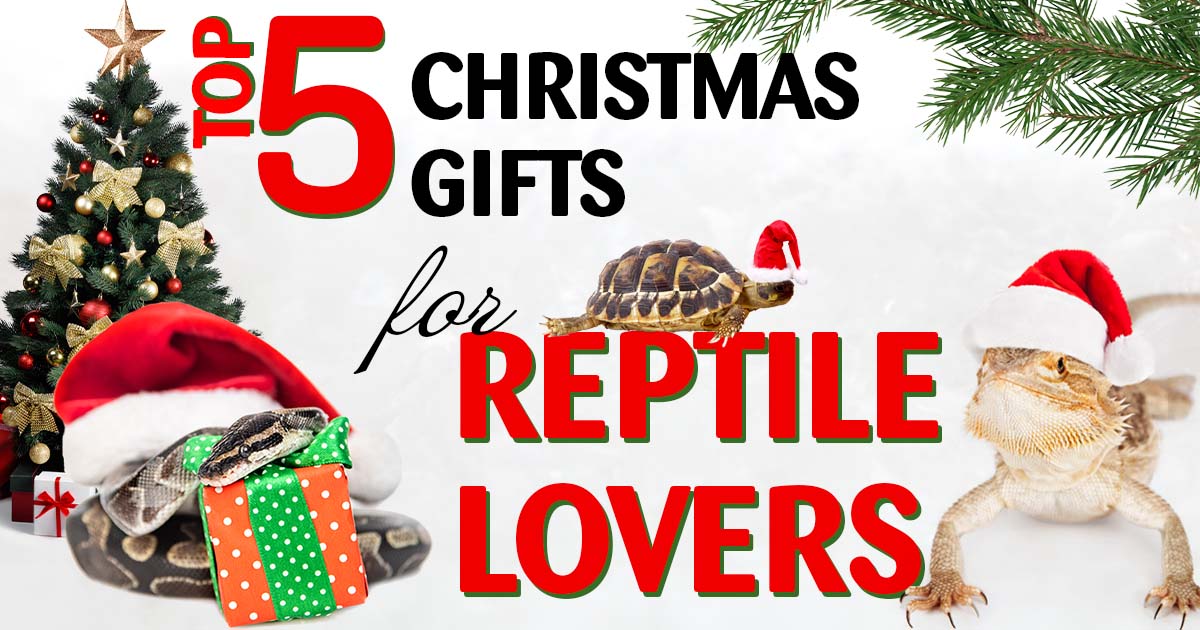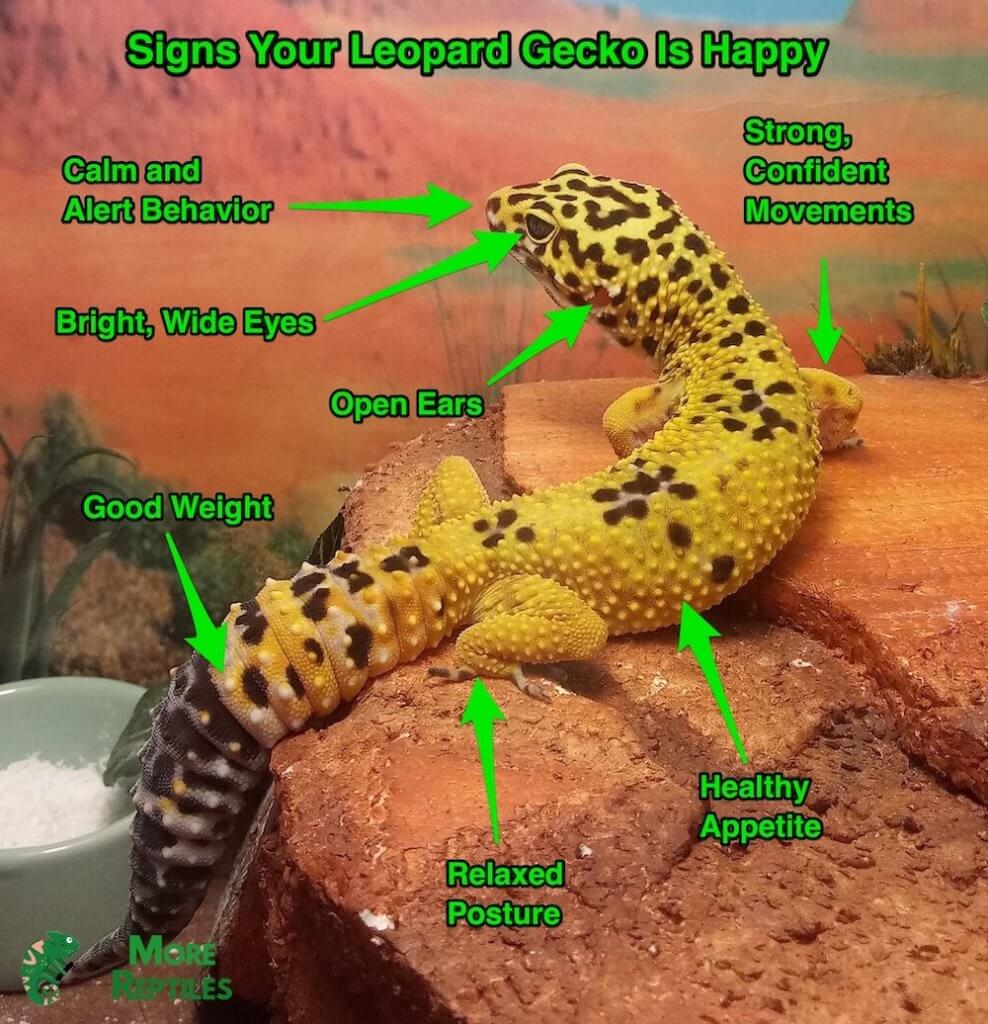Reptiles are, unfortunately, often unappreciated as pets. While there may be a dedicated community of people who love scaly critters in the world, knowing where to start looking for good reptile pets can be difficult. After all, you want to set yourself up for success. That means doing your research, and determining which reptile would work for your home. Unfortunately, reptiles aren’t quite as common a companion animal as your typical cat or dog. That can pose some challenges, and make you feel like you might not have the information or help you need.
With this list, however, you will get a sense of just what type of reptile will not only be able to survive in your care, but thrive.
Lizards
Lizards are scaly reptiles that generally distinguish themselves from snakes with the presence of legs and external ears. No matter the habitat, they play an important role in their surrounding ecosystem as population control for various insects and other reptiles. These animals generally stay relatively small, and most are non-aggressive towards humans, making them some of the best reptile pets. While lizards typically have a variety of vegetation in their diet, some common vegetables, such as onion and avocado can be highly toxic. Be sure to thoroughly research any food before introducing it to your pet’s diet.
Bearded Dragons
Originating from Australia and named after the spines around their throat, bearded dragons are a popular pet for both casual and more invested reptile fanciers. They are known for having friendly, even temperaments, and even enjoying being handled by their owners on occasion. Your lizard may even display unique behaviors not frequently seen in other animals, such as arm waving. Being a larger lizard at 1-2 feet long, they will require a tank that’s around 70 gallons.
While some bearded dragons can be housed together, they are known for being generally territorial. Cohabitation is not advised. One rule of thumb you should follow is never housing two male bearded dragons in the same habitat.
Blue Tongue Skinks
As the name implies, this reptile sports a large, flat, dark blue tongue that is shown off when they are threatened. They happen to be the largest member of the skink family, growing to around 24 inches. As companion animals, they make for docile pets. Many handlers report their skink enjoying occasional chin scratches. While there are other species of skink available in the pet trade, the blue tongue is one of the most common varieties.
Tortoises
Unlike the turtle, tortoises are not amphibious, and require constant access to land. The habitat of these animals ranges from riversides and marshes to deserts. While their diet does typically primarily consist of vegetation, these animals can eat quite a lot.
While many tortoises’s reach a rather large size (some weighing over 100 pounds), they are gentle animals that will do well in captivity with proper care, some living for over 50 years.
Red Footed Tortoise
Originating from South America, the Red Footed Tortoise requires plenty of humidity (around 70{a47be734f0df8d7f120a7df290cf380c79376e8356d1aab405383bb23aa6ce67}-80{a47be734f0df8d7f120a7df290cf380c79376e8356d1aab405383bb23aa6ce67}). Their diet consists of a wide range of roots, fungi, vegetation, and invertebrates such as small insects. Being burrowing animals in the wild to cool down and create shelter for themselves, they will need plenty of substrate to dig up.
Sulcata Tortoise
The sulcata tortoise are large (weighing up to 150 lbs), very long lived (some reaching over 100 years old) reptiles that originate from Africa. When raised correctly, they are sweet, curious lifelong companions. Due to their size, a larger outdoor enclosure will be necessary.
Snakes
While some people fear snakes due to an undeserved reputation for aggression, reptile fanciers know that they can make wonderful, relatively low maintenance pets. Originating from all around the world, these reptiles are often essential to their native ecosystem, and are usually weary of humans.
Ball Pythons
Ball pythons are extremely popular in the pet trade due to their even temperament, manageable size, and variety of beautiful morphs. Aside from their notable colorization, many people find the ball python’s softer, “puppy-dog” like nose and face appealing. Being slow moving and generally calm, they are typically tolerant of handling.
Corn Snakes
Occasionally mistaken for the deadly copperhead, the corn snake sports an eye-catching and contrasting yellow and red color scheme. Younger animals may be somewhat fearful and prefer to hide frequently, but will become more friendly and sociable with proper handling. While they are safe to own, corn snakes occasionally “musk”, or release a foul order when threatened.
Pros and Cons of Owning the Best Reptile Pets
No pet is completely hands off, or without some kind of drawback. While many reptiles thrive in captivity, there are a few different pros and cons that new keepers should be aware of.
Pros
Require minimal attention compared to other pets.
Come in a variety of sizes, shapes, and colors.
Minimal grooming needs (a nail trim at most).
Food and habitat materials are easily accessible.
Little to no allergy risk. Wonderful option for anyone allergic to fur.
Cons
Many reptiles require strict climate control. This includes temperature and humidity monitoring.
Some owners may not want to handle certain food items, such as mice.
Observing and identifying health issues can be difficult. Many reptiles do not exhibit obvious signs of distress.
Finding an experienced exotic vet can be difficult.
Habitats require frequent upkeep and maintenance.
Final Thoughts on Good Reptile Pets
In the end, the best reptile pets are going to be the ones that suit your home, lifestyle, and budget. While some may be easier to care for than others, there is no such thing as a “starter reptile”. Taking factors such as habitat, dietary needs, activity level, temperament, and lifespan are all going to impact your final decision. If you are looking to learn more about these amazing animals before purchasing, you’re in luck. There is a large community of reptile fanciers online that are experienced in keeping a variety of pets that will be happy to help you find your way.




